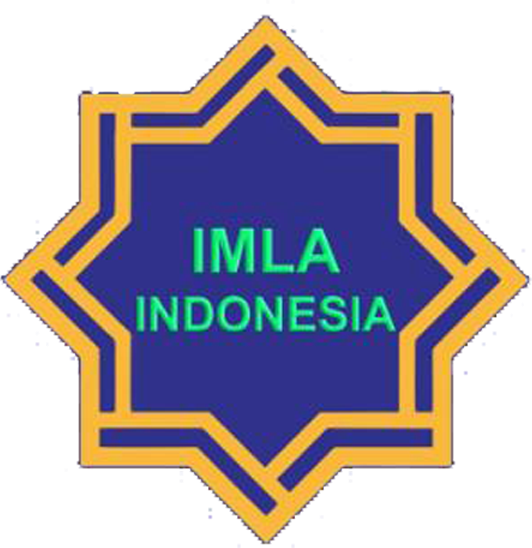Exploring Self-Directed Learning Practices of an Arabic Language Teacher: A Phenomenological Study to Enhance Teaching Quality
Abstract
Keywords
Full Text:
PDFReferences
Alafgani, M., & Purwandari, E. (2019). Self-Efficacy, Academic Motivation, Self-Regulated Learning And Academic Achievement. Jurnal Psikologi Pendidikan Dan Konseling: Jurnal Kajian Psikologi Pendidikan Dan Bimbingan Konseling, 5(2), Article 2. Https://Doi.Org/10.26858/Jppk.V5i2.10930
Amrina, Mudinillah, A., & Hikmah, D. (2022). Pemanfaatan Aplikasi Audacity Dalam Proses Pembelajaran Maharah Istima’ Kelas X Man 1 Solok. Jurnal Teknologi Pendidikan (Jtp), 15(1), Article 1. Https://Doi.Org/10.24114/Jtp.V15i1.28962
Aulia, A. M. I., Hamidah, H., Nuryaman, A. D., & Samdouni, S. (2022). Digital Literacy: Arabic Teacher Competencies In Distance Learning. Izdihar: Journal Of Arabic Language Teaching, Linguistics, And Literature, 5(2), 135–150.
Bastari, K. (2021). Belajar Mandiri Dan Merdeka Belajar Bagi Peserta Didik, Antara Tuntutan Dan Tantangan. Academia: Jurnal Inovasi Riset Akademik, 1(1), Article 1. Https://Doi.Org/10.51878/Academia.V1i1.430
Brockett, R., & Hiemstra, R. (2018). Self-Direction In Adult Learning: Perspectives On Theory, Research, And Practice. In Self-Direction In Adult Learning: Perspectives On Theory, Research And Practice. Https://Doi.Org/10.4324/9780429457319
Carter Jr, R. A., Rice, M., Yang, S., & Jackson, H. A. (2020). Self-Regulated Learning In Online Learning Environments: Strategies For Remote Learning. Information And Learning Sciences, 121(5/6), 321–329. Https://Doi.Org/10.1108/Ils-04-2020-0114
Fenwick, T., & Tennant, M. (2004). Understanding Adult Learners. In Dimensions Of Adult Learning. Routledge.
Hauge, K. (2021). Self-Study Research: Challenges And Opportunities In Teacher Education. In Teacher Education In The 21st Century—Emerging Skills For A Changing World. Intechopen. Https://Doi.Org/10.5772/Intechopen.96252
Herdyansyah, D. E., Chan, F., & Budiono, H. (2021). Desain Multimedia Interaktif Sebagai Sarana Belajar Mandiri Pada Pembelajaran Ipa Dimasa Pandemi [Other, Universitas Jambi]. Https://Repository.Unja.Ac.Id/29733/
Ilmiani, A. M., Miolo, M. I., Hunainah, H., & Maghfurin, A. (2022). Building Literacy In Reading Foreign Language Books For Arabic Education Students. Arabiyat : Jurnal Pendidikan Bahasa Arab Dan Kebahasaaraban, 9(1), Article 1. Https://Doi.Org/10.15408/A.V9i1.20312
Jamil, J. (2022). Pengaruh Keterampilan Belajar Mandiri, Disiplin Belajar, Dan Keinginan Berprestasi Terhadap Hasil Belajar Mahasiswa Upbjj Universitas Terbuka Makassar. Cokroaminoto Journal Of Primary Education, 5(1), Article 1. Https://Doi.Org/10.30605/Cjpe.512022.1655
Kafi, F. A., & Husna, Z. F. (2021). Pendampingan Edukasi Learning-Independence (Belajar Mandiri) Pada Pelajar Bahasa Arab. An-Nuqthah, 1(1), Article 1. Https://Doi.Org/10.1234/An-Nuqṭah.V1i1.581
Kara, M., Erdogdu, F., Kokoc, M., & Cagiltay, K. (N.D.). Challenges Faced By Adult Learners In Online Distance Education: A Literature Review. Open Praxis, 11(1), 5–22. Https://Doi.Org/10.3316/Informit.234110355704611
Kristiyani, T. (2020). Self-Regulated Learning: Konsep, Implikasi Dan Tantangannya Bagi Siswa Di Indonesia. Sanata Dharma University Press.
Linkous, H. M. (2021). Self-Directed Learning And Self-Regulated Learning: What’s The Difference? A Literature Analysis. In American Association For Adult And Continuing Education. American Association For Adult And Continuing Education. Https://Eric.Ed.Gov/?Id=Ed611648
Loughran, J. (2002). Understanding Self-Study Of Teacher Education Practices. In Improving Teacher Education Practice Through Self-Study. Routledge.
Lung-Guang, N. (2019). Decision-Making Determinants Of Students Participating In Moocs: Merging The Theory Of Planned Behavior And Self-Regulated Learning Model. Computers & Education, 134, 50–62. Https://Doi.Org/10.1016/J.Compedu.2019.02.004
M.A, P. D. D. R. (2020). Penelitian Kualitatif Untuk Ilmu Pendidikan. Prenada Media.
Patimah, E., & Sumartini, S. (2022). Kemandirian Belajar Peserta Didik Pada Pembelajaran Daring: Literature Review. Edukatif : Jurnal Ilmu Pendidikan, 4(1), Article 1. Https://Doi.Org/10.31004/Edukatif.V4i1.1970
Pinnegar, S., & Hamilton, M. L. (2009). The Self, The Other, And Practice In Self-Study Of Teaching And Teacher Education Practices Research. In Self-Study Of Practice As A Genre Of Qualitative Research: Theory, Methodology, And Practice (Pp. 11–37). Springer Netherlands. Https://Doi.Org/10.1007/978-1-4020-9512-2_2
Pithouse-Morgan, K. (2022). Self-Study In Teaching And Teacher Education: Characteristics And Contributions. Teaching And Teacher Education, 119, 103880. Https://Doi.Org/10.1016/J.Tate.2022.103880
Sáez-Delgado, F., López Angulo, Y., Mella-Norambuena, J., Baeza-Sepúlveda, C., Contreras-Saavedra, C., & Lozano-Peña, G. (2022). Teacher Self-Regulation And Its Relationship With Student Self-Regulation In Secondary Education. Sustainability, 14, 16863. Https://Doi.Org/10.3390/Su142416863
Sembiring, W. S., Sudatha, I. G. W., & Simamora, A. H. (2021). E-Modul Ipa Untuk Memfasilitasi Siswa Menengah Atas Belajar Mandiri. Jurnal Teknologi Pembelajaran Indonesia, 11(1), Article 1. Https://Doi.Org/10.23887/Jurnal_Tp.V11i1.635
Suardinata, I. K. (2021). Unit Kegiatan Belajar Mandiri Jitu Pembelajaran Daring Bermutu Di Masa Pandemi. Strategy : Jurnal Inovasi Strategi Dan Model Pembelajaran, 1(1), Article 1. Https://Doi.Org/10.51878/Strategi.V1i1.287
Sukri, H., & Fatah, D. A. (2020). Rancang Bangung Model Pembelajaran Flipped Classroom Sebagai Solusi Peningkatan Daya Belajar Mandiri Mahasiswa. Jurnal Ilmiah Edutic : Pendidikan Dan Informatika, 6(2), Article 2. Https://Doi.Org/10.21107/Edutic.V6i2.6171
Tasaik, H. L., & Tuasikal, P. (2018). Peran Guru Dalam Meningkatkan Kemandirian Belajar Peserta Didik Kelas V Sd Inpres Samberpasi. Metodik Didaktik : Jurnal Pendidikan Ke-Sd-An, 14(1), Article 1. Https://Doi.Org/10.17509/Md.V14i1.11384
Teng, L. S., & Zhang, L. J. (2020). Empowering Learners In The Second/Foreign Language Classroom: Can Self-Regulated Learning Strategies-Based Writing Instruction Make A Difference? Journal Of Second Language Writing, 48, 100701. Https://Doi.Org/10.1016/J.Jslw.2019.100701
Tong, D. H., Uyen, B. P., & Ngan, L. K. (2022). The Effectiveness Of Blended Learning On Students’ Academic Achievement, Self-Study Skills And Learning Attitudes: A Quasi-Experiment Study In Teaching The Conventions For Coordinates In The Plane. Heliyon, 8(12), E12657. Https://Doi.Org/10.1016/J.Heliyon.2022.E12657
Wahyudi, W., Jumadi, J., & Nurhidayah, D. A. (2022). Implementasi Instrumen Kemandirian Belajar Mahasiswa Untuk Meningkatkan Prestasi Belajar Di Masa Pandemi Covid-19. Jurnal Cendekia : Jurnal Pendidikan Matematika, 6(1), Article 1. Https://Doi.Org/10.31004/Cendekia.V6i1.1299
DOI: http://dx.doi.org/10.17977/um056v7i2p150-162
Refbacks
- There are currently no refbacks.
Copyright (c) 2023 Aulia Mustika Ilmiani, Mahfuz Rizqi Mubarak, Soukaina Samdouni

This work is licensed under a Creative Commons Attribution-NonCommercial 4.0 International License.
AL-ARABI is indexed by:
Editorial Office:
Al-Arabi: Journal of Teaching Arabic as a Foreign Language
Arabic Department, Faculty of Letters, Universitas Negeri Malang (UM)
Jalan Semarang 5, Malang 65145, Indonesia.
Telephone: (0341) 551312 Ext. 239. Fax (0341) 567475.
E-mail: alarabi@um.ac.id

Al-Arabi: Journal of Teaching Arabic as a Foreign Language is licensed under a Creative Commons Attribution 4.0 International License.
Based on a work at http://journal2.um.ac.id/index.php/alarabi/










